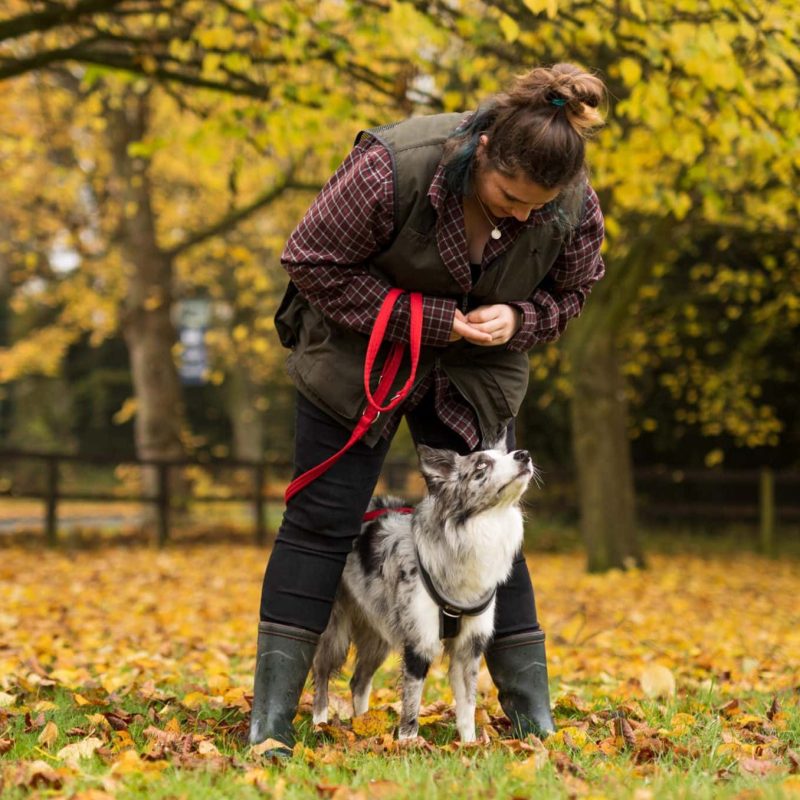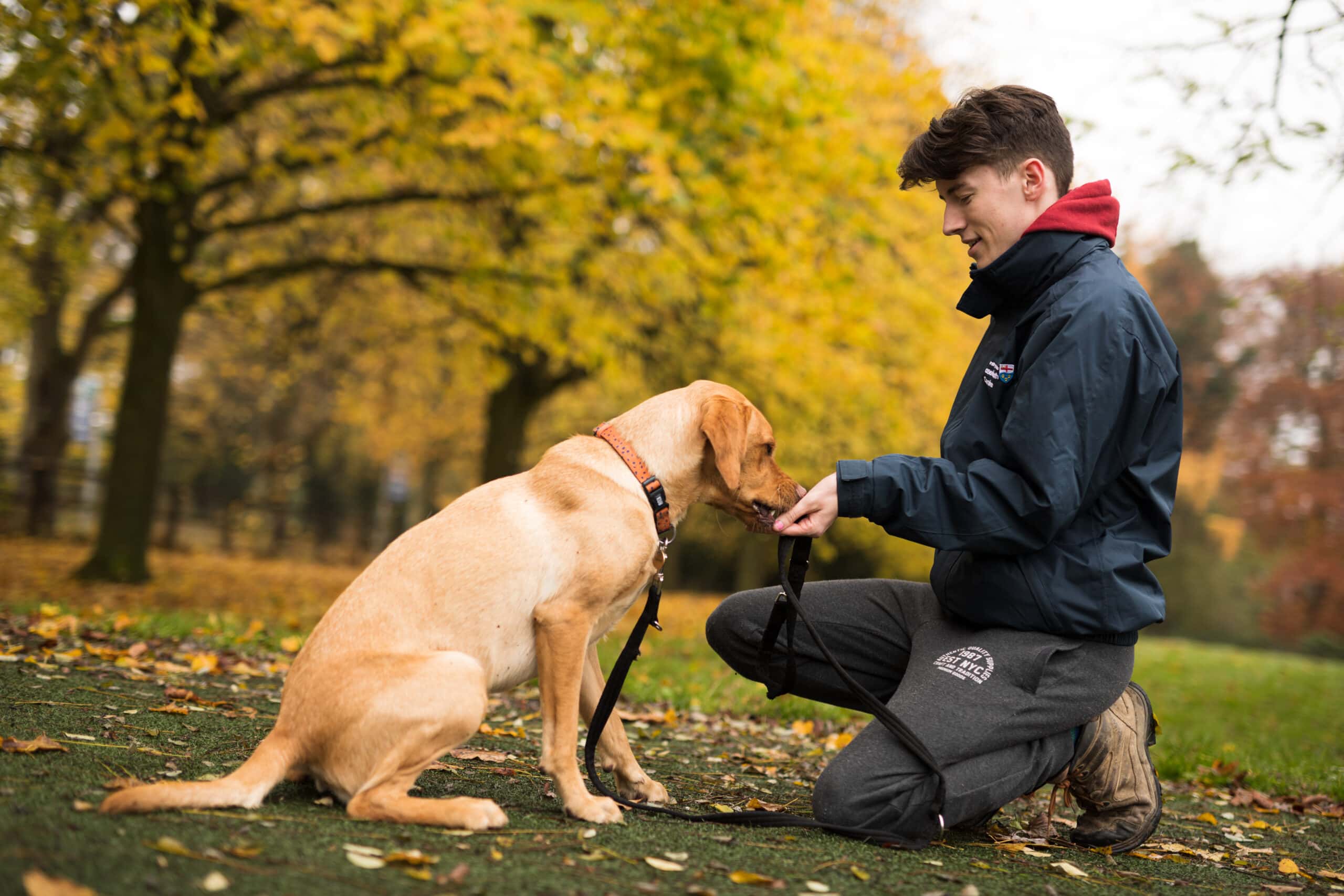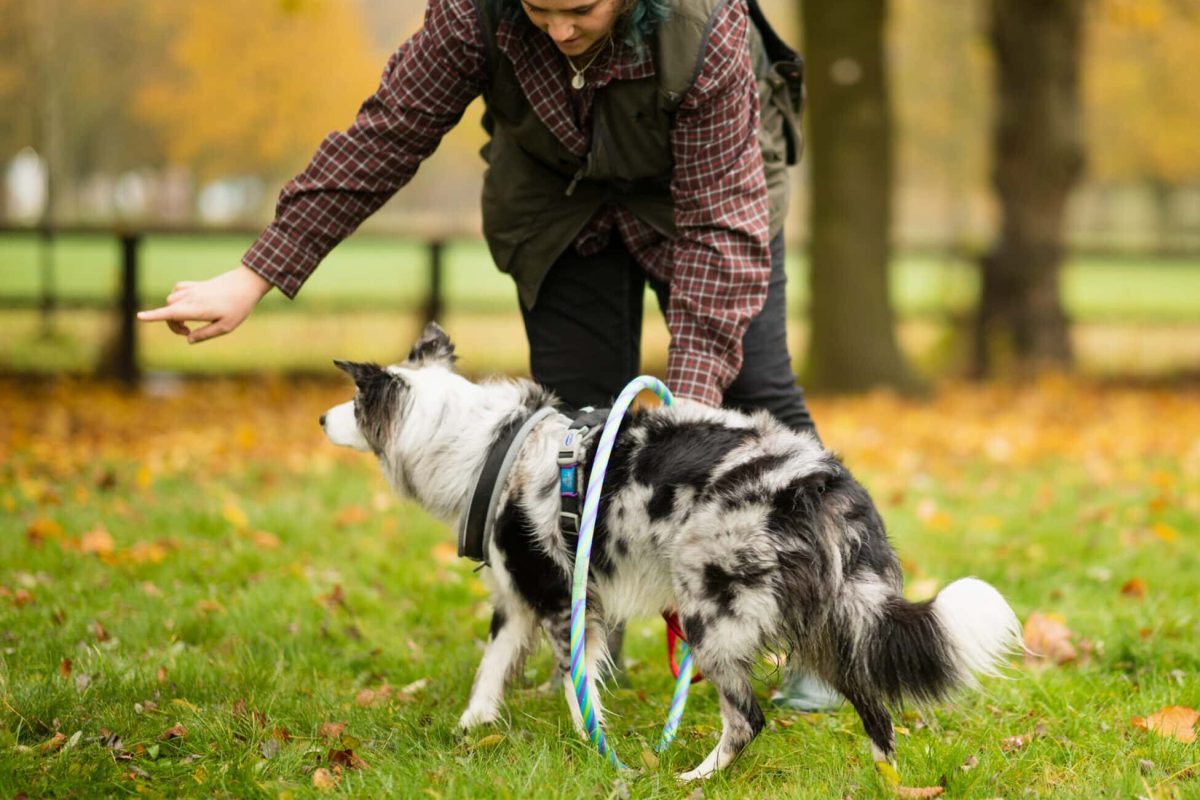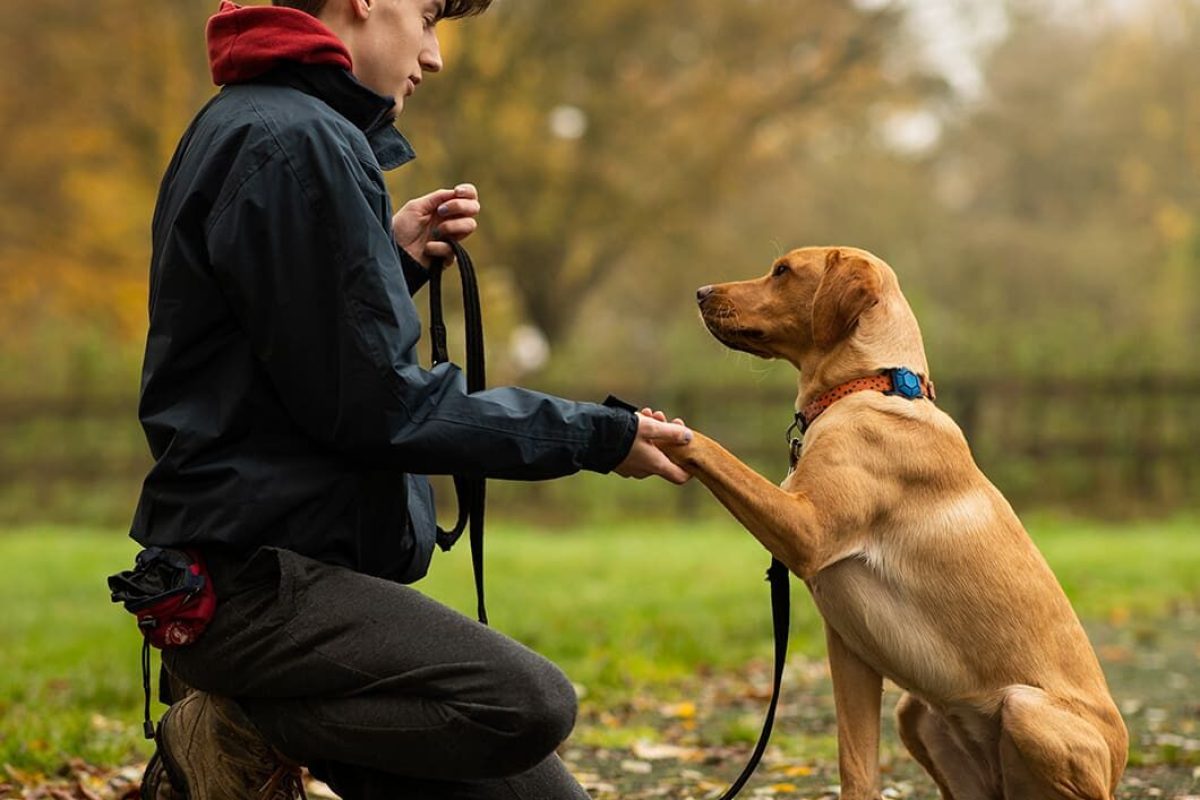Do you want to pursue a career in the canine industry, without the commitment of a full degree?
This one-year full-time programme aims to develop the knowledge and skills which are necessary to professionally and ethically undertake canine behaviour and training roles, through the balance of theoretical study with applied practical experience. As a student on this course, you will use the kennel and training facilities, working with dogs from different disciplines, breeds, sizes and temperaments.


This course is aimed at students who wish to develop a career within the canine industry through the development of scientific knowledge underpinning canine behaviour and training.
Students can expect an interactive and personable learning experience that draws upon the expertise of our team of dedicated staff, with whom students can engage in study using our first-class facilities on campus. You will have regular access to canine facilities at University Centre Reaseheath, which boasts a kennel block, and both indoor and outdoor training arenas.
Whether you use this course to start your career in the canine industry or use this as a stepping stone to a Foundation Degree in Canine Behaviour and Welfare, there has never been a better time to pursue a CertHE in Canine Behaviour and Training.


Students are provided with a combination of academic study with practical learning opportunities to develop a range of academic and professional skills, knowledge and practical competencies associated with working in the canine industry.
As well as developing essential knowledge and skills in canine sciences, a strong emphasis will also be placed on the development of academic skills to ensure your studies are successful and provide you with the tools to progress to Foundation Degree level.
A minimum of 64 UCAS points from one of, or a combination of, the qualifications below, ideally in a science-based or relevant subject:
Please note: we accept a maximum of 20 UCAS points from GCE AS Levels and that the Welsh Baccalaureate (core) and A Level General Studies will be recognised in our offer. We will also consider a combination of A Levels and BTECs/OCRs.
Non-standard entry: applicants aged 21 years of age or over without standard academic qualifications may be able to demonstrate considerable vocational experience and transferable skills. Their applications will be viewed on an individual basis to assess suitability. Any applicant who has not received certification for prior learning experiences, but has worked within the discipline, will also be considered. In some instances, applicants may be asked to attend an interview or complete a written assessment to support their application.
Contextualised Admissions: to support access and participation in Higher Education, University Centre Reaseheath operates a contextualised admissions policy, which allows reduced offers to be made to students with certain characteristics and/or social background. Further information can be found in the UCR Contextualised Admissions Policy, available on the website.
International Students: This course is not accepting applications from students requiring sponsorship for a Student visa. If you do not require sponsorship please contact UCRAdmissions@reaseheath.ac.uk for further information.
Additional Entry Requirements
Practical experience working with dogs is preferential
Students are expected to study and complete 120 credits which comprises six mandatory modules of study:
Your overall workload consists of class contact hours, independent learning and assessment activity, plus field trips. Your actual contact hours may depend on which optional modules you select, but the following information gives an indication of how much time you will need to allocate to different activities:
Year 1: 30% of your time is spent in timetabled teaching and learning activity
Teaching, Learning and Assessment: 360 hours
Independent Study: 840 hours
Class sizes typically range between 8-14 for practical sessions and 30-40 for theory sessions, for modules exclusively delivered on the programme. For those modules offered across several programmes, class size could be as high as 90 individual learners.
Assessments are designed to encourage both academic skills and skills valued in the workplace. They include a combination of coursework and timed online assessments. Coursework may take many forms including essays, reports, leaflets, practical reports, ethograms and case studies.
Timed online assessments vary, depending on the nature of the module, but may take the form of multiple-choice papers, essays, practical assessments, data handling questions and short answer quizzes.
The approximate percentage of the course assessed by coursework is as follows:
Year 1
75% Coursework
25% Timed Online Assessments
Opportunities for feedback on your progress will be available throughout your course. This will be provided in many formats, including written and verbal. Feedback on graded work is supplied via Turnitin or directly from the module tutor. Most assessment submissions are made via Turnitin and feedback for coursework is provided within 20 working days after the submission date.
Written feedback will be supported verbally should the student require clarification. Formative assessment feedback will be provided at the time of completion where possible, with more detailed summative feedback for reports.
A full list of recommended texts is made available upon online enrolment. Our campus library has sufficient stocks of major texts and e-books to support student learning therefore the purchasing of textbooks is not compulsory and is optional
Equipment Costs
Equipment costs may include the purchase of suitable outdoor clothing and training equipment as listed below.
Students may wish to purchase suitable outdoor wear in preparation for bad weather (i.e. waterproof/windproof coat). The above items can be purchased either independently or through the online shop.
Students may also wish to purchase the following training equipment:
Approximately £20 for all training equipment (prices of training equipment are subject to change dependent on retailer).
Students will be able to access course timetables for the academic year in September.
Timetables are subject to change, but most students can expect to spend 3-4 days per week on campus.
Tuition Fees
As a student at UCR, you will have two main costs to meet; your tuition fees and living costs.
Our full-time tuition fees for UK and EU students, entering University, can be found on our student finance page. These fees are charged for each academic year of a course and are set by the college annually.
Tuition fees for international students can also be found on our student finance page.
Equipment Costs
[Copy from old site]
Here you will find useful information about the services and support available at University Centre Reaseheath. Click to expand each item:
University Centre Reaseheath is committed to providing additional financial support to those who need it. To find out about the bursary schemes available visit our additional financial support page.
For students to get the best out of their time at University Centre Reaseheath, we must both recognise that we owe obligations to each other. These obligations are set out in our UCR Student Contract. Before you accept an offer of a place at University Centre Reaseheath, it is important that you read these contract conditions. If you are going to be living in Halls of Residence, you will also need to read the Student Accommodation Licence Conditions. Both of these contracts can be found here.
Click here to view the University Centre Reaseheath Student Protection Plan.
All UCR students are given the opportunity to apply for residential accommodation. First year students are guaranteed accommodation and this offer is made to all applicants who live more than a reasonable daily travelling distance from Reaseheath (providing you have applied before the UCAS equal considerations deadline. For full details on our halls of residence visit our accommodation page.
We have a team of dedicated professionals on hand to offer you support. These include our Student Services Team, Inclusive Learning Team, Library and Learning Resources Team and the Reaseheath Careers Service. You can find more information on the support provided at Reaseheath on our support page.
University Centre Reaseheath is proud to welcome international students. For more information, please visit our international students page.